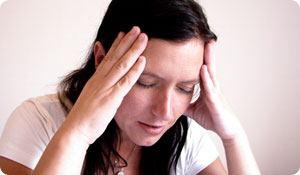
One of the challenges in diagnosing mental health disorders is that symptoms of different diseases tend to overlap. Obsessive compulsive disorder (OCD) and obsessive compulsive personality disorder (OCPD) are two related conditions that are easy to confuse. However, there are some clear differences between the two.
Individuals who have either condition are consumed with obsessive behaviors and beliefs, which cause them to suffer from considerable inner turmoil and anxiety. Where the two conditions diverge is in their philosophy about the way they think and act.
Obsessive Compulsive Disorder (OCD) vs. Obsessive Compulsive Personality Disorder (OCPD)
People with obsessive compulsive disorder are aware that their feelings and behaviors are unreasonable; they know these obsessions and worries generally do not relate to real-life concerns. They want to stop, but can't. In contrast, individuals with obsessive compulsive personality disorder don't believe they have a problem; they are deeply entrenched in their beliefs and see their way as the right way-and the only way. They tend to adhere to a rigid code of morals and ethics.
While both conditions create anxiety and frustration, in people who have OCPD, the feelings stem from their conviction that all would be well if others just conformed to their way of thinking. In the literature about OCPD, physicians often described these patients as having righteous indignation.
One of the hallmarks of obsessive compulsive disorder is the overwhelming drive to perform repetitive behaviors, or rituals, in hopes it will relieve some of the the anxiety caused by their irrational thoughts and actions. You'll find similar behaviors in people with OCPD. However, these individuals also have difficulty making decisions and finishing tasks. They're fixated on lists, rules, and small details and devote an excessive amount of time and attention to work.
Because of their emotional rigidity, unwillingness to assign tasks, and the tendency to resist authority (although they want to have authority over others), people with OCPD suffer from conflicts in relationships with coworkers and family members, who may feel they are continually criticizing and trying to control them.
Mental health experts estimate that one in a hundred people may suffer from OCPD. It tends to run in families and men are twice as likely as women to have OCPD. Of course, individuals may have some of the traits of OCPD without having the full personality disorder.
The good news is that the outlook for OCPD is generally better than for other personality disorders. Psychotherapy, sometimes with the help of medication, is the most effective treatment.
Sources:
National Institutes of Mental Health. "Obsessive Compulsive Disorder." Web.
http://www.nimh.nih.gov/health/topics/obsessive-compulsive-disorder-ocd/index.shtml
International OCD Foundation. Web. http://www.ocfoundation.org/
Van Noppen, Barbara, Ph.D. "Obsessive Compulsive Personality Disorder (OCPD)." Web.
http://www.ocfoundation.org/uploadedFiles/MainContent/Find_Help/OCPD%20Fact%20Sheet.pdf
Phillipson, Steven, Ph.D. "Obsessive Compulsive Personality Disorder: A Defect of Philosophy, not Anxiety."Web. http://www.ocdonline.com/articlephillipson6.php
Mayo Clinic. "Obsessive Compulsive Disorder." Web. http://www.mayoclinic.com/health/obsessive-compulsive-disorder/DS00189/DSECTION=symptoms
Vorvick, Linda, MD, and Benger Merrill, Michelle, MD. "Obsessive-compulsive personality disorder." Medline Plus. Web. 23 November 2010.
http://www.nlm.nih.gov/medlineplus/ency/article/000942.htm
Obsessive Compulsive Personality Disorder Support Group. Web. http://ocpd.freeforums.org/





